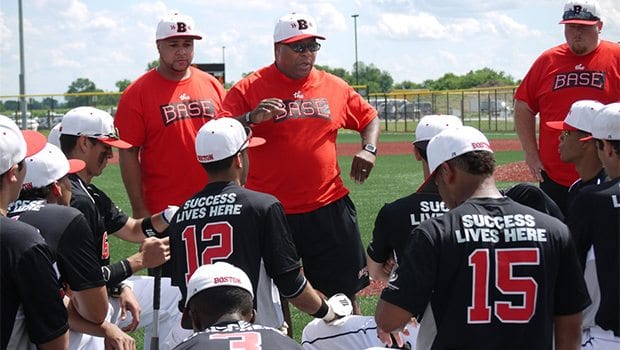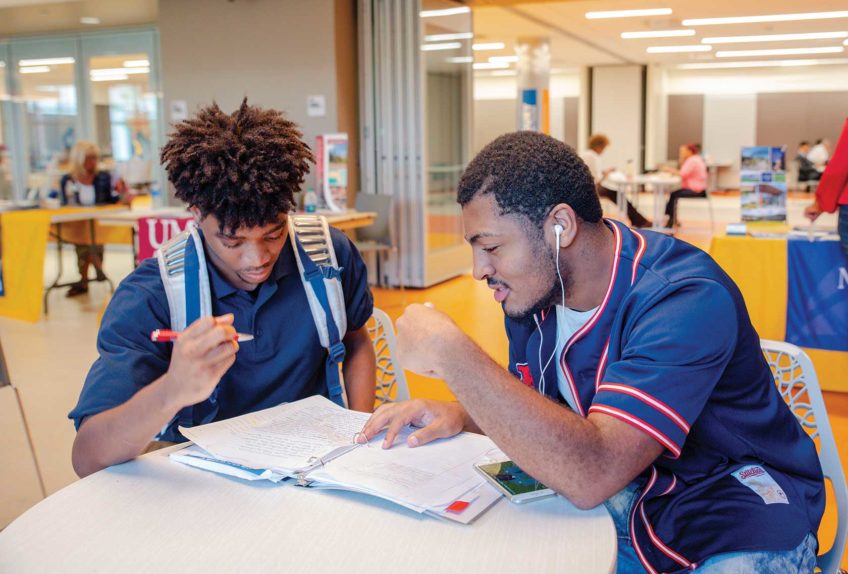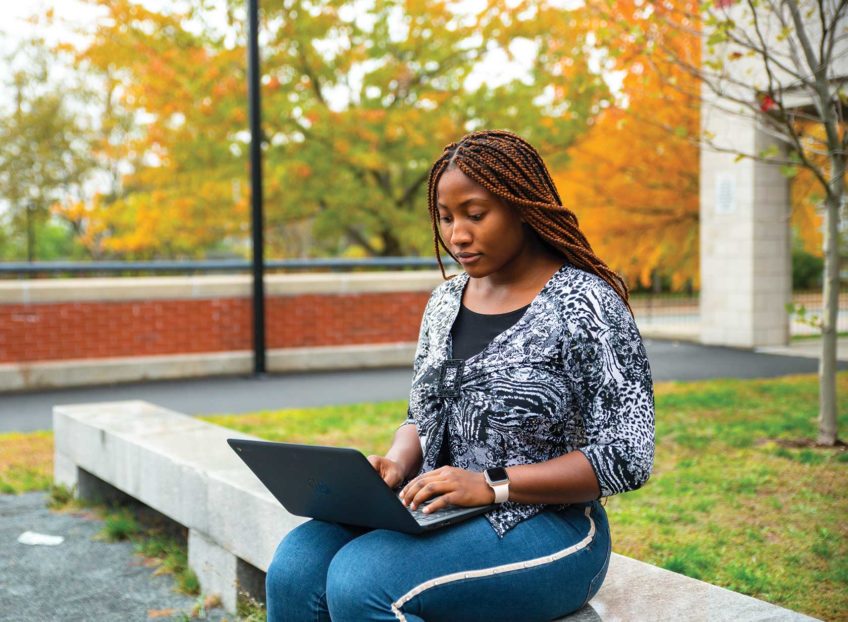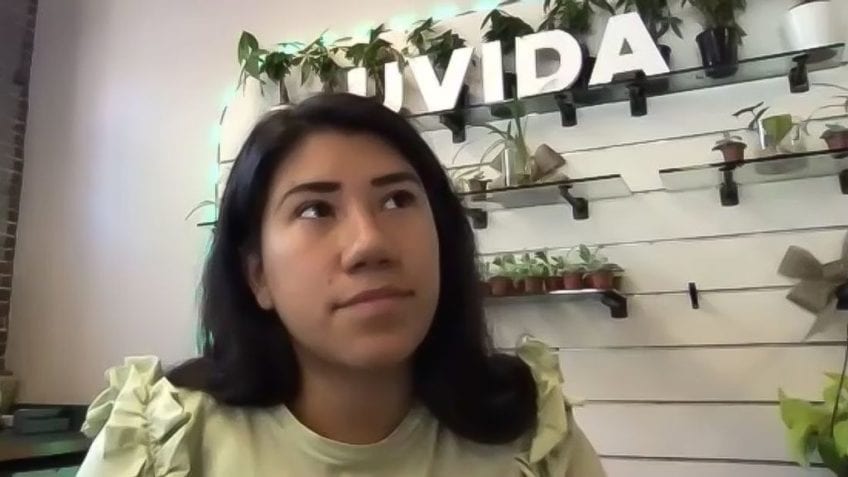The BASE gives Boston kids a game plan for life
Using the game of baseball as a bridge to a college education

Tour the base’s new 7,100 square-foot baseball training facility in roxbury, and you will be impressed with this inner city nonprofit that provides a baseball-oriented development program to a predominantly latino and black group of youth. But baseball is just half the story.
“When I talk about The BASE, I don’t talk baseball at all,” explains founder Robert Lewis, Jr., “To me what we do here is all about building citizenship and success in life, not just baseball. The passion point is baseball, but then everything else we do provides each of our student athletes with the tools to succeed in life. Our tagline is ‘Success Lives Here.’”
Lewis began The BASE as the next chapter of his 35-year commitment to mentoring and training inner city youth through the Boston Astros, a baseball team he founded and which has served some 8,000 youths. The Astros won two national titles in the past three years, and can count 30 graduates currently attending and playing at the college level, three playing in major league teams, and many more graduates who are past or present major league prospects.
To this winning baseball formula, The BASE adds comprehensive academic and life skills to prepare each student athlete for success in college and beyond. Lewis estimates that a BASE student-athlete spends 250 hours annually on baseball development and at least the same amount of time honing their academic and life skills via BASE offerings and their own initiative.

Robert Lewis, Jr. gives his team their pre-game strategy at the Pastime 18U National Championship game in Indianapolis in July. Jimmy Caruso, Manager of Baseball Operations for The BASE and one of the coaches of the 18U team looks on. Photo courtesy of The BASE.
“My biggest goal is to revive urban baseball in America by using baseball to shift the trajectory of all our kids so that they have a game plan for life,” says Lewis.
To help kids aspire to and achieve that game plan The BASE starts “talking college” early to each of its roughly 400 youths, grades 7 – 12.
“BASE graduates and high school players also mentor and model success on and off the field for our younger boys,” Lewis adds.
The most critical piece of the plan is money for tuition, Lewis says. This coming year he already has secured $13 million in academic scholarship commitments from several area colleges for the 20 seniors he expects to graduate in 2015. In June of this year all 20 of The BASE’s graduating seniors announced their college commitments.
And these aren’t athletic scholarships which are usually partial (and very limited for Division 1 and 2 baseball programs; Division 3 programs do not offer athletic scholarships at all) and renewed annually at the college coach’s discretion. The BASE graduates have two- or four-year college commitments that carry full academic scholarships. It’s an important, often life changing distinction for an inner city student athlete who may be the first in his family to attend college and who most often requires full financial aid.
“Too many talented minority athletes go somewhere on an athletic scholarship that only pays for part of their tuition and for none of their other expenses like books,” Lewis says. “They get hurt, lose their scholarship and end up back in the neighborhood walking around with no degree and in debt.”
The latest college-incentive perk Lewis has added to the package: Lewis recently secured a commitment from SONY to provide laptops to each college-bound BASE graduate.
Clearly, being completely affordable is a bit of a theme with Lewis. The BASE provides everything — baseball training, equipment, and baseball team travel expenses as well as after-school tutoring, SAT prep, free medical and dental check-ups, nutritional and financial counseling and trips to college fairs — free.

Robert Lewis, Jr. and his team. Photo courtesy of The BASE.
And Lewis is constantly seeking to expand educational opportunities that will bolster his kids’ reach to further their education. This fall The BASE will begin hosting classes credited toward an associate degree cosponsored by Endicott College and the Benjamin Franklin Institute of Technology.
But free of financial cost is far from free of personal commitment. In addition to being talented enough to make a BASE-affiliated team, in order to use The BASE facility and all its resources students must either stay in school, join an accredited job-training program, or pursue a GED. No school, no baseball.
The purpose of this strict academic requirement goes beyond a tough-training approach. It’s a total shift in the paradigm of urban youth success that Lewis aims to communicate to his players, his community and his all-star team of funding partners — including the Boston Foundation, the law offices of WilmerHale, the Lewis Foundation, the Riley Foundation, the Hestia fund, and area banks among them — that underwrite his $1.5 million operating budget.
“I know the statistics: Only 51 percent and 55 percent (respectively) of black and Latino kids graduate high school and only seven percent of Latinos graduate college,” Lewis says. “My goal is to turn that upside down so that when people hear about our program they say ‘of course every BASE graduate is graduating high school and going to college, of course I’m interested in recruiting them for my college or my company.’
“When I talk to college presidents they know they need help attracting and retaining urban students of color and they are looking for programs like The BASE that have already prepared a student to succeed academically, not just athletically. And my funding partners know it’s not just about philanthropy, it’s about investing in the next generation of their workforce and changing the generations to come.”






